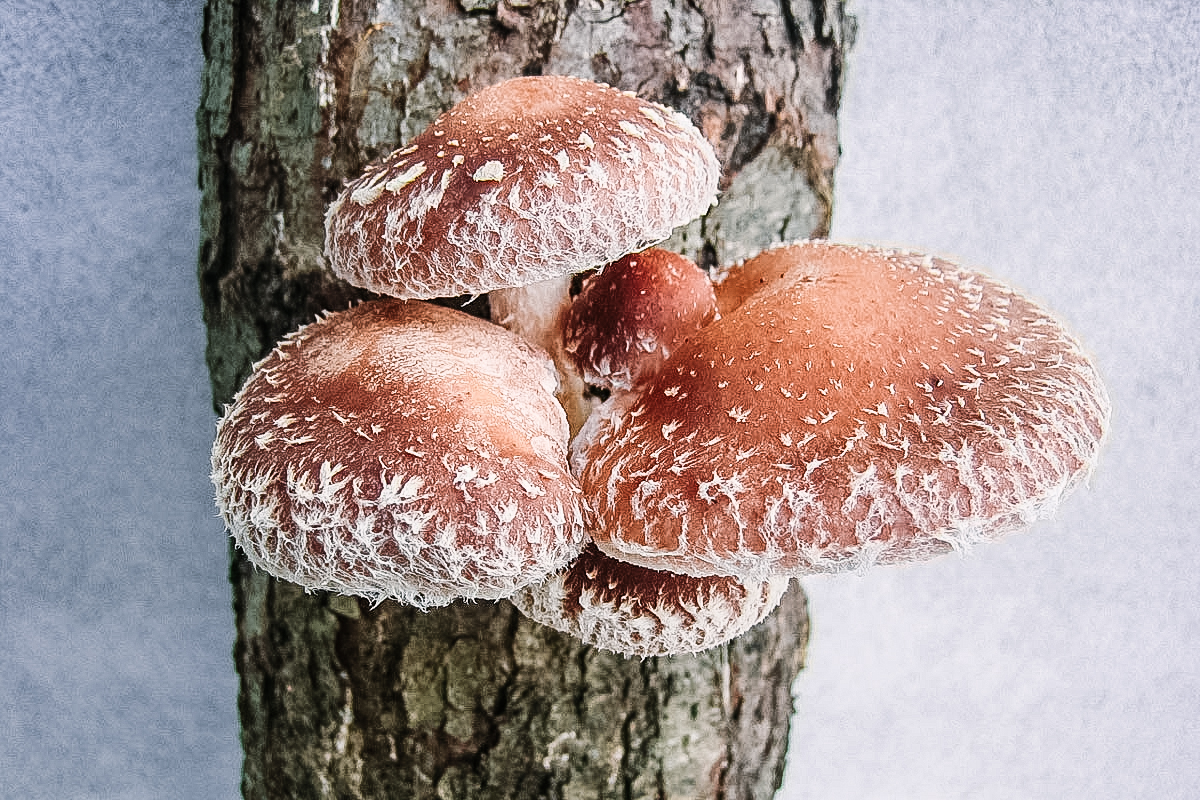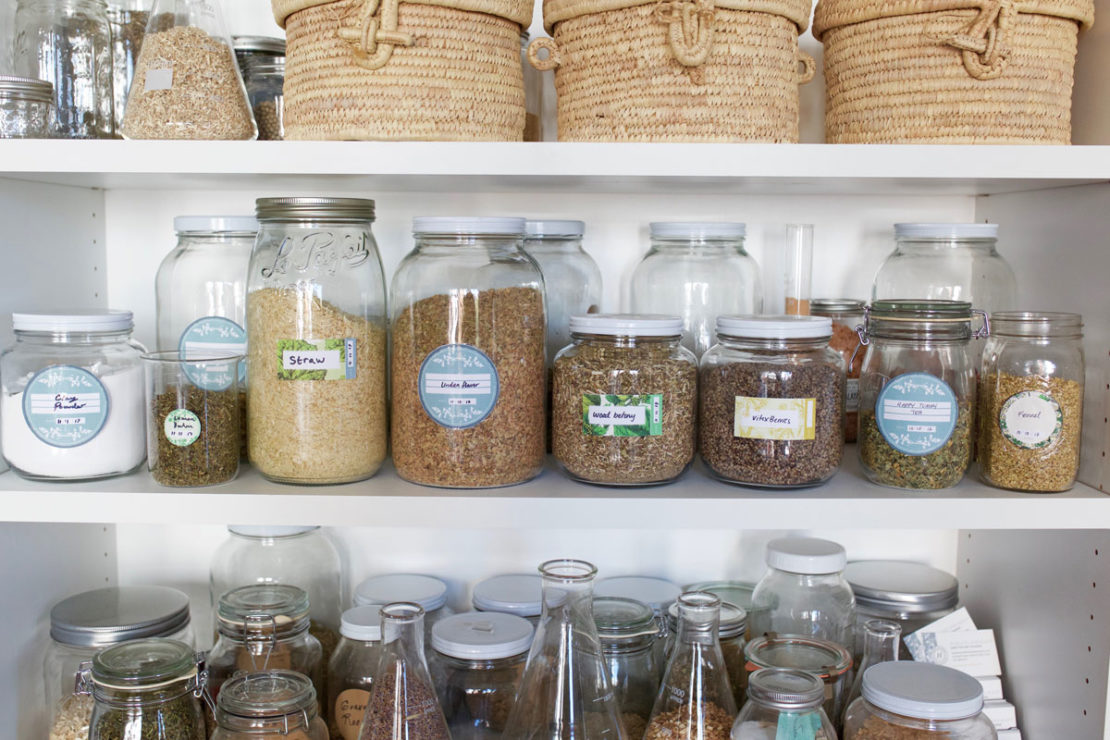
Safe Antiviral Herbs for Autoimmune Disease
Immune support is on everybody’s mind right now, and not just for our own benefit but also for the greater good! The changing news and recommendations during the current outbreak of viral illness is enough to make even those who are generally well a little bit uneasy about what to do. For individuals who have experienced hypersensitivity reactions in the past, or have preexisting conditions like rheumatoid arthritis or type 1 diabetes, finding safe herbs for autoimmune disease has an added layer of complexity.
Are immune-supportive herbs a good idea for those with autoimmune conditions or a history of hypersensitivity reactions, or could these herbs do more harm than good?

This is a quiet worry of many people affected by these conditions.
There has been quite a lot of conversation lately about the use of elderberry and elderflower (Sambucus canadensis and S. nigra), and whether these herbs could cause complications during the flu or other viral infection. This is especially important for individuals looking for safe, immune-supportive herbs for autoimmune disease. See our article here for more about elderberry and immune-stimulation concerns.
This is an important conversation of which to be aware, but it has overshadowed important conversations about other herbs, and the range of wise practices and herbal support we can implement at home.
Discussions about safe and informed use of herbs is even more critical now, as we are told to take care at home whenever possible. This is a time in which it is especially important to open the herbal-support discussion up to a wider range of herbs and actions, and to discuss herbs that herbalists and herb learners may already have on hand.
Let’s start by looking at a few categories of herbs for immune support.
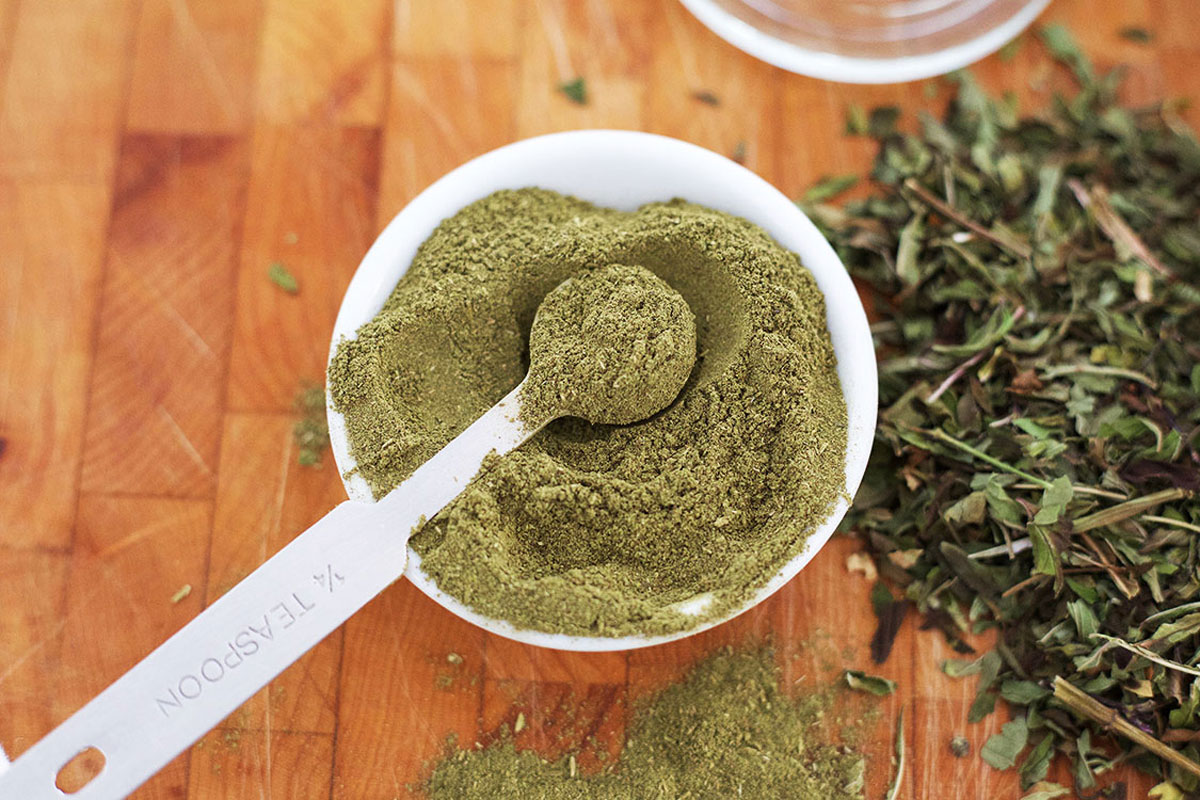
CATEGORIES OF IMMUNE ACTION
There are several different categories we use to describe an herb’s action with regard to the immune system. Take these into consideration, but don’t rely entirely on the terms you see in a single resource. Every herb has many constituents and performs a variety of actions. These terms are a tool we use to talk about general actions of herbs on the body in comparison to each other. Some sources favor one term or another, which is why it is useful to look at a variety of sources. It’s also helpful to ask questions to those who have more experience with a given herb.
- Immunostimulant: Immunostimulants, also known as “immune stimulants” or “immunopotentiators” generally stimulate immune system activities.
- Immunomodulant: Immunomodulants, also known as “immune modulants,” may increase vigilance against pathogens, especially in cases of immune hypofunction, and may also reduce immune activity associated with autoimmune reactions and hypersensitivity reactions (Angelini, 2016).
- Immunoadjuvant: Immunoadjuvants enhance the body’s production of antibodies in the presence of an antigen (Hoffmann, 1993).
By the purest definitions, immunostimulants and immunoadjuvants may not be ideal classes of herbs for autoimmune disease. This is because the immune system can treat the body’s own cells — or proteins in otherwise safe, healthy foods — as antigens, causing tissue damage or inflammatory reactions.
Immunomodulants, on the other hand, are a more neutral approach. However, they’re not entirely without the risk of aggravating an autoimmune or hypersensitivity concern. What complicates matters even more is that, as mentioned above, herbs don’t fit neatly into just one category. Individuals may also respond differently to various herbs, particularly in the context of autoimmune concerns.
Immunostimulants

Generally, we call herbs that have a potent stimulating effect on the immune system “immunostimulants.” These herbs often encourage a quick, though brief, immune response. For example, echinacea (Echinacea spp.) stimulates a non-specific immune response and isolated constituents have been shown to increase cytokine activity (Thompson Healthcare, 2007), both of which are functional responses in most cases. However, because individuals with autoimmune issues are more prone to dysregulation of immune functions, there are other herbs for autoimmune disease that may be a safer choice for them.
There are a number of other herbs that are categorized as immunostimulants. When you see this term, know that these herbs may also be contraindicated for individuals with autoimmune issues and for those who have experienced hypersensitivity reactions in the past (Hoffmann, 2003).
Some sources will use “immunostimulant” — or any one of these immune-related terms — for all herbs with immune-related actions. However, that doesn’t necessarily mean an herb has a more stimulating effect on the immune system compared to another herb described as an “immunomodulant.” It also doesn’t mean that the herb called an immunomodulant is safer or less stimulating.
It’s always wise to use the herbs that you are most familiar with (perhaps those that you have used before). When you are building your knowledge with various herbal sources, reference at least two or three different sources whenever possible, for context. You can also reach out to a trusted herbalist mentor who does have experience using the herbs you have in mind. If you are still unsure, consider checking in with a clinical herbalist or naturopathic doctor.
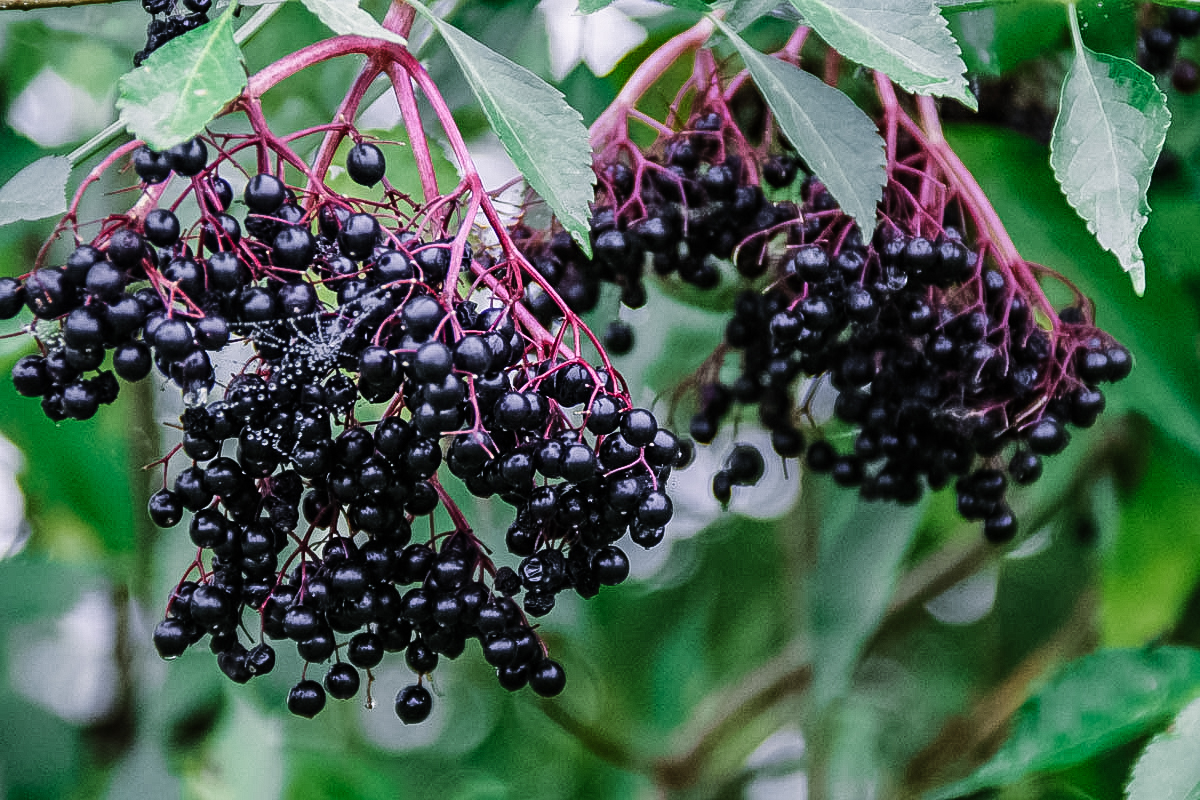
Below, we’ve put together a short list of potentially problematic herbs for autoimmune disease or hypersensitivity reactions, many of which you may be hearing a lot about lately! If you have an autoimmune condition or hypersensitivity reactions, do listen to your own body when choosing herbs. If possible, also seek out information based on others’ experiences with these herbs in respect to particular autoimmune conditions. That information may be more specific for you and inform your choices! Do not be discouraged. There are still many herbs and supportive foods and practices to choose from, even while avoiding those that could be problematic because of immune activation.
Common immune-use herbs that may be problematic for individuals with autoimmune or hypersensitivity issues:
- Cat’s Claw (Uncaria tomentosa) (theoretical concern, as recognized by Brinker, 2010)
- Echinacea (Echinacea spp.) (Brinker, 2010)
- Elderberry (Sambucus spp.) (Andrew Weil Center, n.d.)
- Garlic (Allium sativum) (Johns Hopkins, 2020)
- Spilanthes (Acmella oleracea) (theoretical concern, due to similarity to echinacea)
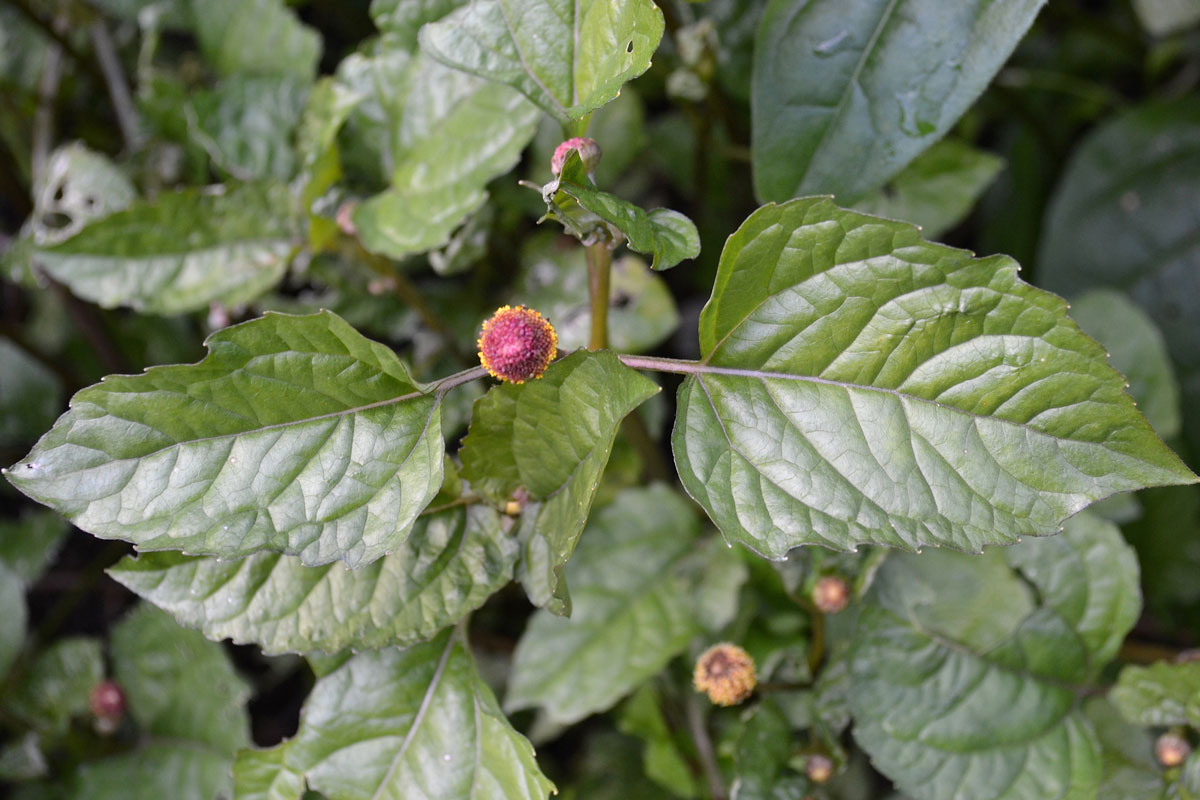
Note that this is not an exhaustive list and individuals with autoimmune or hypersensitivity concerns may have very individualized responses to herbs as each individual and condition is unique. Also, please note that the herbs mentioned above will not be problematic for all individuals with these conditions. In some cases, any one of these could be useful for someone under supervision of a health professional who is very knowledgeable and experienced with the herb and condition.
Immunomodulants
Immunomodulants are herbs that help to regulate an immune response. They do this through possible stimulation of macrophages and natural killer cells and/or raising productivity of antibodies (Lull et al., 2005). Many of these herbs are high in polysaccharides and/or saponins. These herbs may lend a hand in strengthening and tonifying the immune system, therefore strengthening the body and its resistance to disease.
Many mushrooms used in herbalism fall into this category, including reishi (Ganoderma spp.), cordyceps (Cordyceps militaris, Ophiocordyceps sinensis), turkey tail (Trametes versicolor), and shiitake (Lentinula edodes). Immunomodulant herbs include astragalus (Astragalus membranaceus), codonopsis (Codonopsis pilosula), licorice (Glycyrrhiza glabra), and tulsi (Ocimum tenuiflorum).
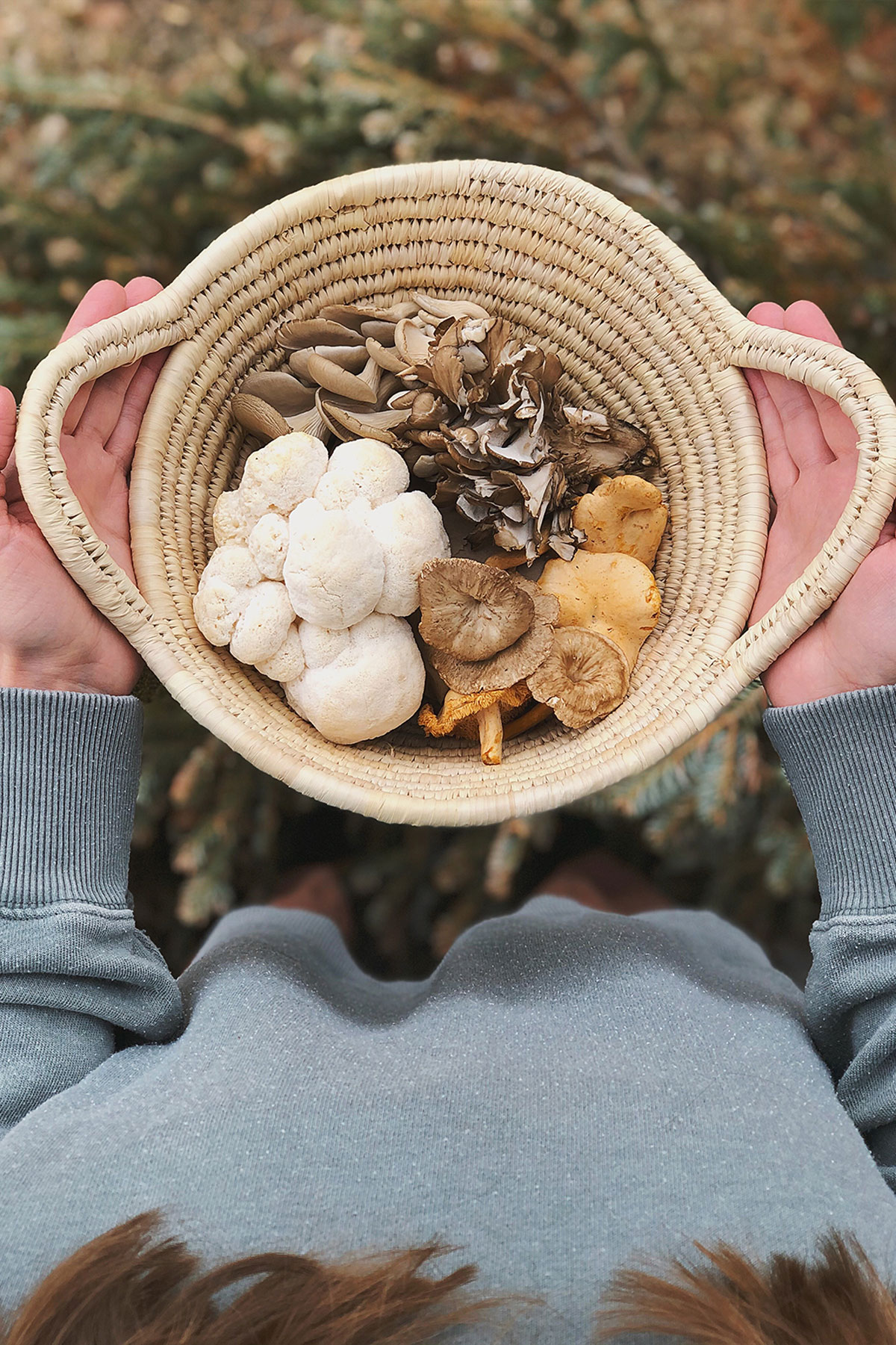
Immunomodulating Mushrooms
The unifying trait among so many of the mushrooms used in herbalism is the presence and concentration of immunomodulating complex polysaccharides. Some of these constituents, such as beta-glucans, seem to support immune surveillance for bacteria and viral proteins while they downregulate the activity of specific cytokines (specialized proteins released by immune cells) that can cause autoimmune responses and allergies (Angelini, 2016). This category of immunomodulating mushrooms can be extended further to include a few mushrooms you may already know and can find in the grocery store. You may even have them on hand already! Below, we’ve highlighted a few mushrooms with a reputation as immune tonics.
Reishi (Ganoderma spp.) fruiting body
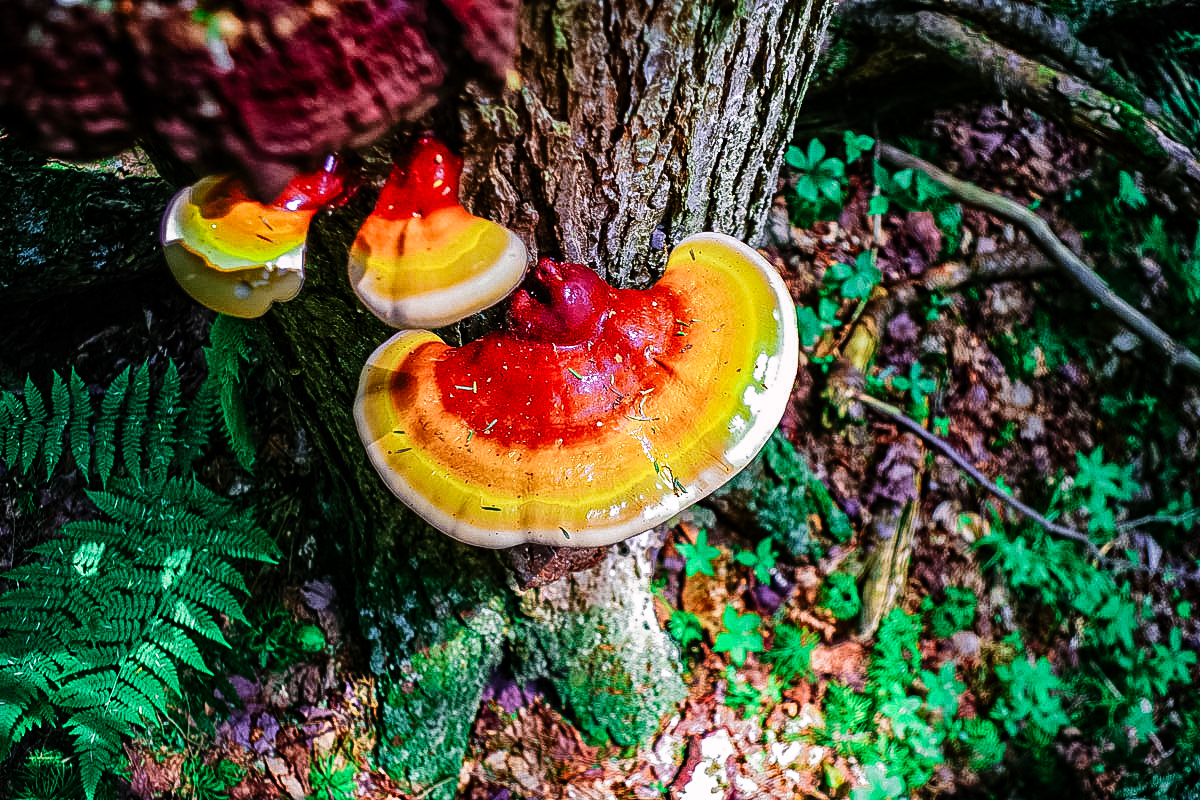
Reishi (Ganoderma spp.) encompasses several species of related mushrooms, typically G. lucidum, G. tsugae, or G. applanatum. These species of reishi have a reputation both traditionally and currently for supporting healthy reactivity of the respiratory and immune systems. For example, you might find that someone with hay fever or allergic rhinitis keeps a preparation of reishi on hand for support during allergy season. While different sources may suggest different conclusions about this mushroom with respect to autoimmune concerns — and every person may respond to any given herb differently— reishi is generally considered to be immunomodulating and anti-inflammatory with an affinity for the respiratory tract. Take for example the following, from an article by Dr. Eugene Zampieron, ND, and Ellen Kamhi RN, PhD, nationally board certified holistic nurse (AHN-BC), and Registered Herbalist (AHG-RH), in the Journal of Restorative Medicine:
Reishi mushroom is a true “amphoteric” herb, which can up regulate or down regulate the immune system as needed. Reishi mushroom is rich in polysaccharides, immune-modulating proteins, and steroidal saponin glycosides that influence the adrenal-hypothalamic-pituitary axis feedback loop, which regulates inflammation (Zampieron & Kamhi, 2012, pg. 41).
Reishi and the other mushrooms described below are typically considered tonic herbs that one could consume daily or for a period of time for the greatest support. Preparations for reishi include decoction, powder, capsule, dual-extract tincture, and glycerite.
Turkey Tail (Trametes versicolor) fruiting body
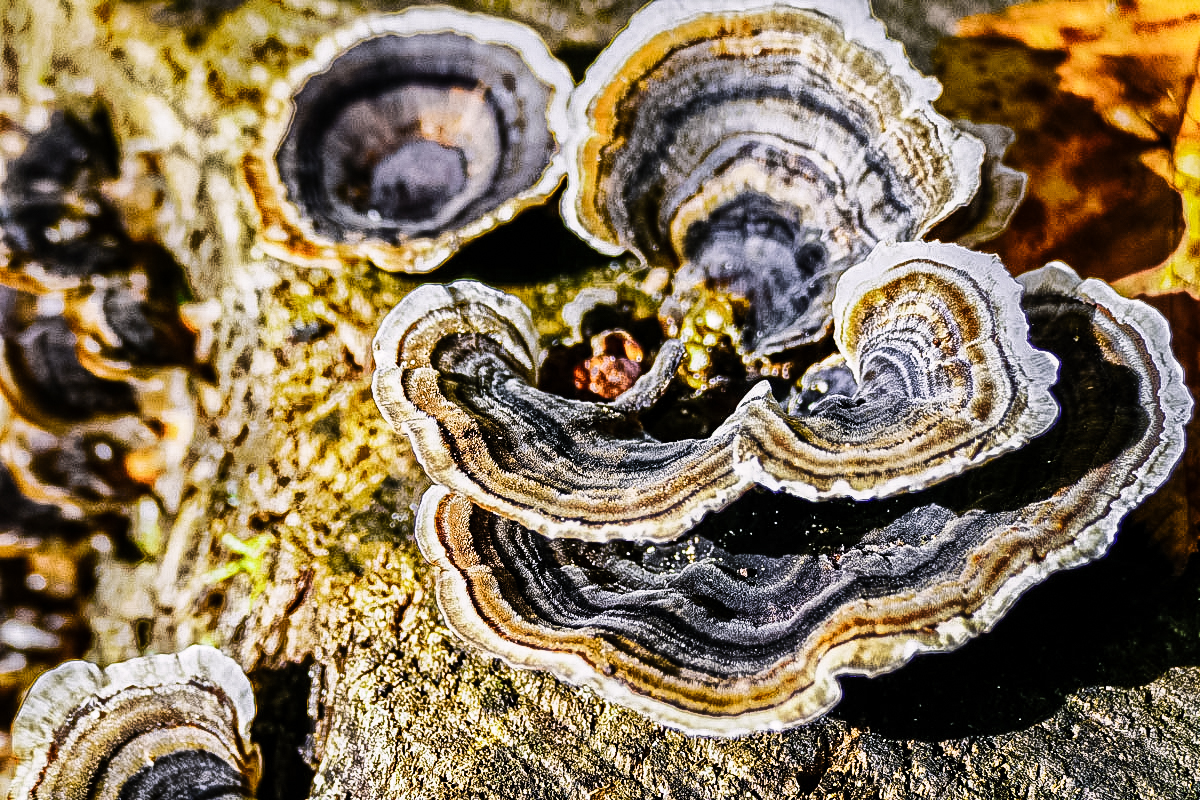
Turkey tail (Trametes versicolor) is one of the mushroom species best known for its immunomodulant polysaccharides. These polysaccharides have been isolated and are widely used in Japan as an immune-supportive adjuvant alongside chemotherapy. Compounds from turkey tail have also recently been demonstrated to have prebiotic activity (Pallav et al., 2014), which can in turn promote the health of the human microbiome. And supporting the microbiome doesn’t only benefit the digestive system—healthy gut flora provide benefits throughout the body, including the immune system!
In Chinese medicine, turkey tail is used to reduce phlegm and tonify the respiratory system. It’s also used as a qi tonic for individuals with chronic disease (Hobbs, 1995). Turkey tail is neutral-tasting and can easily be incorporated into a decoction, healthful broth, or savory soup. It is also available in capsules, as powder, and as a dual-extract tincture.
Shiitake (Lentinula edodes) fruiting body
Shiitake (Lentinula edodes) may be easier to find than the above mushrooms—look for it in your grocery store’s fresh or dry mushroom section—and it has powerful immunomodulating properties. One of the polysaccharides found in shiitake is shown to have both immune-potentiating and antiviral actions (Kuhn & Winston, 2008). In many respiratory illnesses, one is susceptible to both viral and secondary bacterial infections, and shiitake can offer some protection from both (Stamets, 2005).
Shiitake is a tasty culinary mushroom and can be added to soups, stews, stir-fries, and many other dishes. It can also be prepared as a decoction or dual-extract tincture, and shiitake capsules and powder are available commercially.
Cordyceps (Cordyceps militaris, Ophiocordyceps sinensis) fruiting body
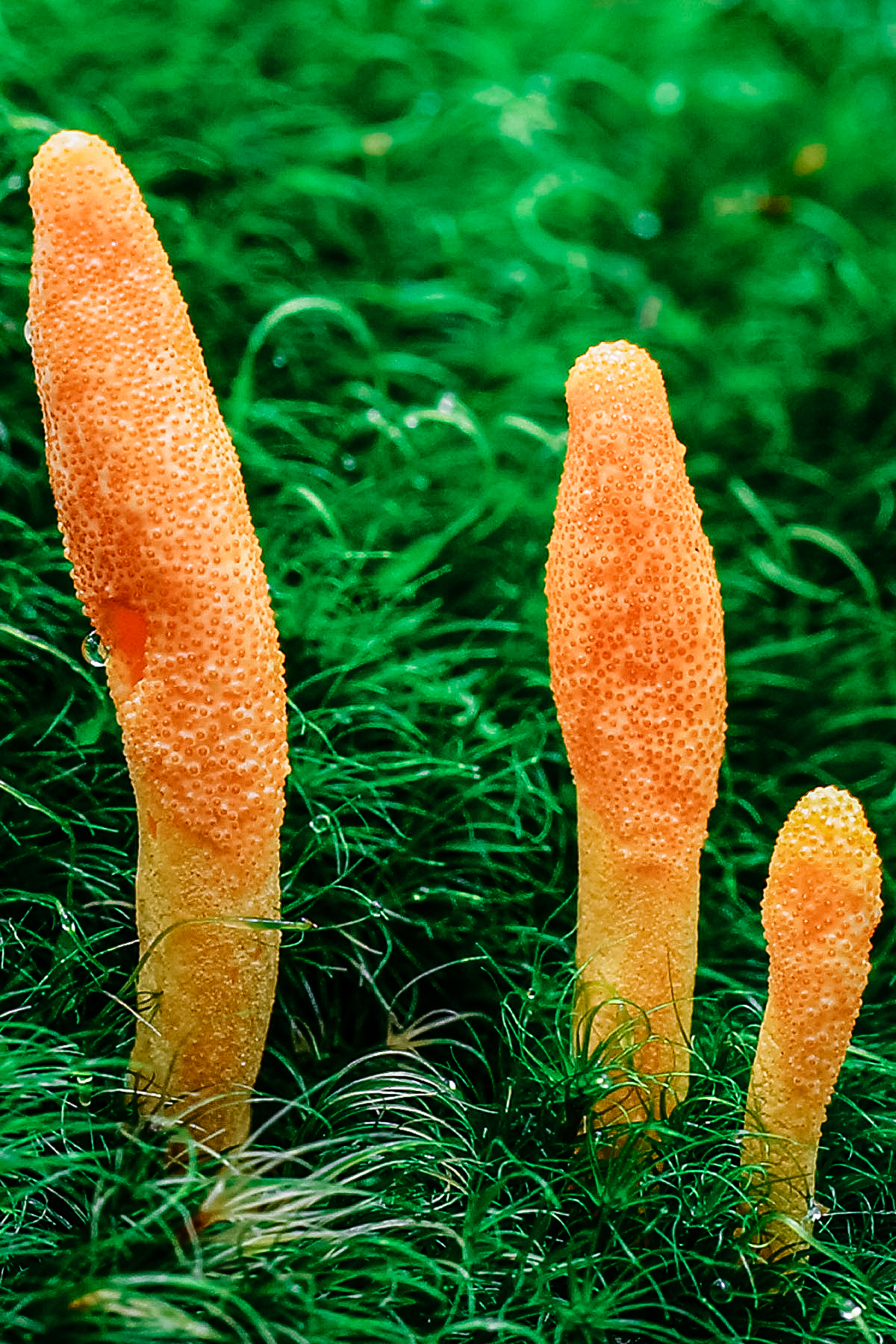
There is one more higher-octane, immune-supportive mushroom that has some interesting uses and past clinical use related to a former novel flu outbreak.
Cordyceps (Cordyceps militaris, Ophiocordyceps sinensis), a mushroom that grows on the body of caterpillars, is used in Chinese medicine for dry conditions, including dry coughs and asthma. Having adaptogenic properties that help the body deal with both physical and emotional stress, cordyceps is also hepatoprotective and has been shown to improve kidney function (Kuhn & Winston, 2008). In regard to the immune system, cordyceps has demonstrated synergistic immune- and cytokine-regulating actions as well as an overall anti-inflammatory effect (Sun et al., 2010). Cordyceps is known for its particular affinity for the lungs and is specifically indicated for fatigue.
Cordyceps’ ability to support individuals during the SARS outbreak of 2002/2003 is documented in the Pharmacopeia of the Chinese Ministry of Health by the Pharmacopeia (Zeng et al., 2019). A study done on patients with moderate to severe persistent asthma showed that the use of cordyceps in conjunction with use of pharmaceutical asthma medication resulted in a significant improvement in lung function and more symptom-free days compared with the use of pharmaceutical medication alone (Wang et al., 2016). According to herbalist Michael Tierra, cordyceps is especially useful for chronic coughs and can be taken for a long period of time (Tierra, 1998).
Note that there have been cases of lead poisoning from consumption of cordyceps products due to contamination with lead as a way to increase the weight of the product (Gardner & McGuffin, 2013). Because of this contamination issue, as well as the limited range of wild cordyceps mushrooms (Ophiocordyceps sinensis), seek out capsules, dual-extract tinctures, and powder made from cordyceps mycelium or cultivated cordyceps (Cordyceps militaris).
If you’re interested in learning more about using mushrooms for wellness, let us invite you to join us in our course, The Mushroom Course.
Immunomodulating Herbs
Astragalus (Astragalus membranaceus) root
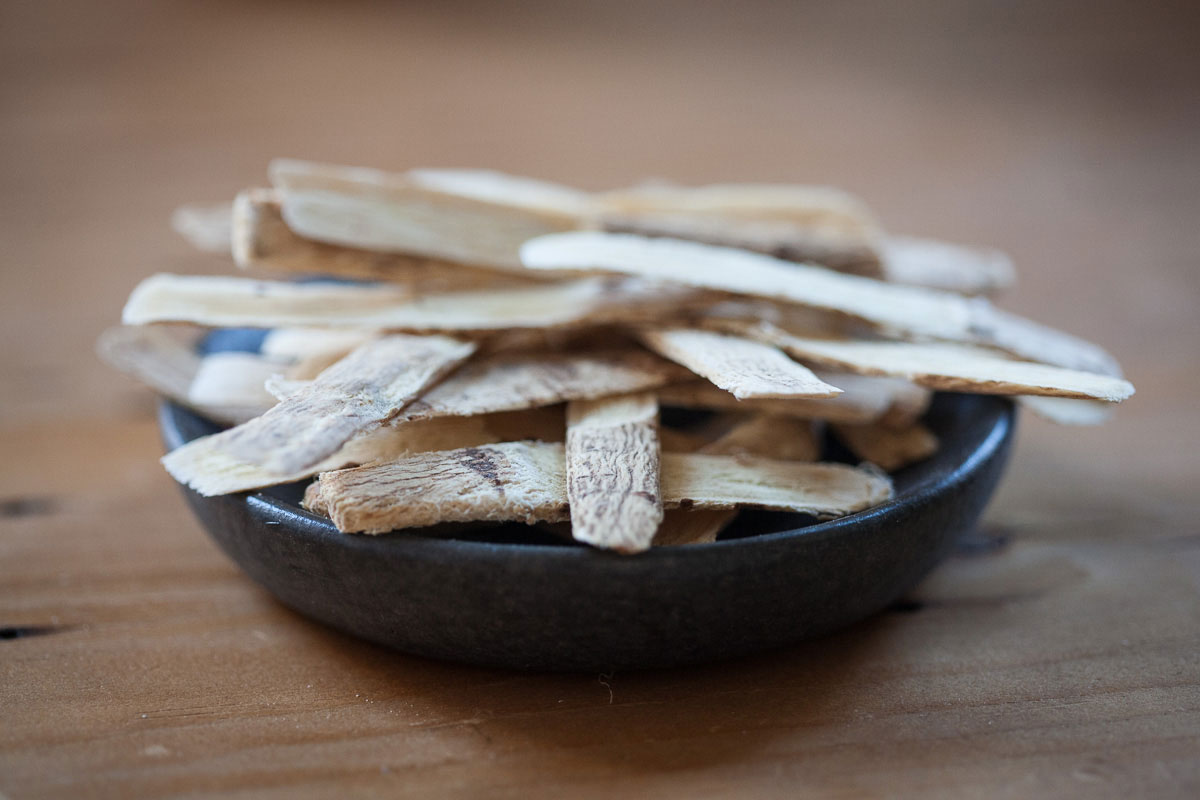
Astragalus (Astragalus membranaceus) root is an immunomodulating herb often used in Chinese medicine. We could not possibly cover all of its benefits here, but some of its most common uses include strengthening the lungs and protecting against colds and other contagious illnesses (Kuhn & Winston, 2008). Astragalus has long been used for building and strengthening the immune system both before and after illness. It can help the body deal with stress, both physical and emotional, therefore raising the body’s ability to help combat illness.
Some herbalists argue that astragalus has immune-stimulating qualities as well as immunomodulant properties. As such, individuals should check with their healthcare provider if there is any concern. Astragalus is sometimes contraindicated with fever; however, other herbalists continue to use astragalus throughout the course of illness, especially in weak or frail individuals. In the case of a novel virus, we don’t have as much experience to rely on. We do know that astragalus is currently being used in many Chinese medicine protocols for active viral infection.
Astragalus root is mild-tasting and can be included in stocks and broths, prepared as a decoction, tincture, glycerite, or syrup, or powdered and added to hot water.
Licorice (Glycyrrhiza glabra) root
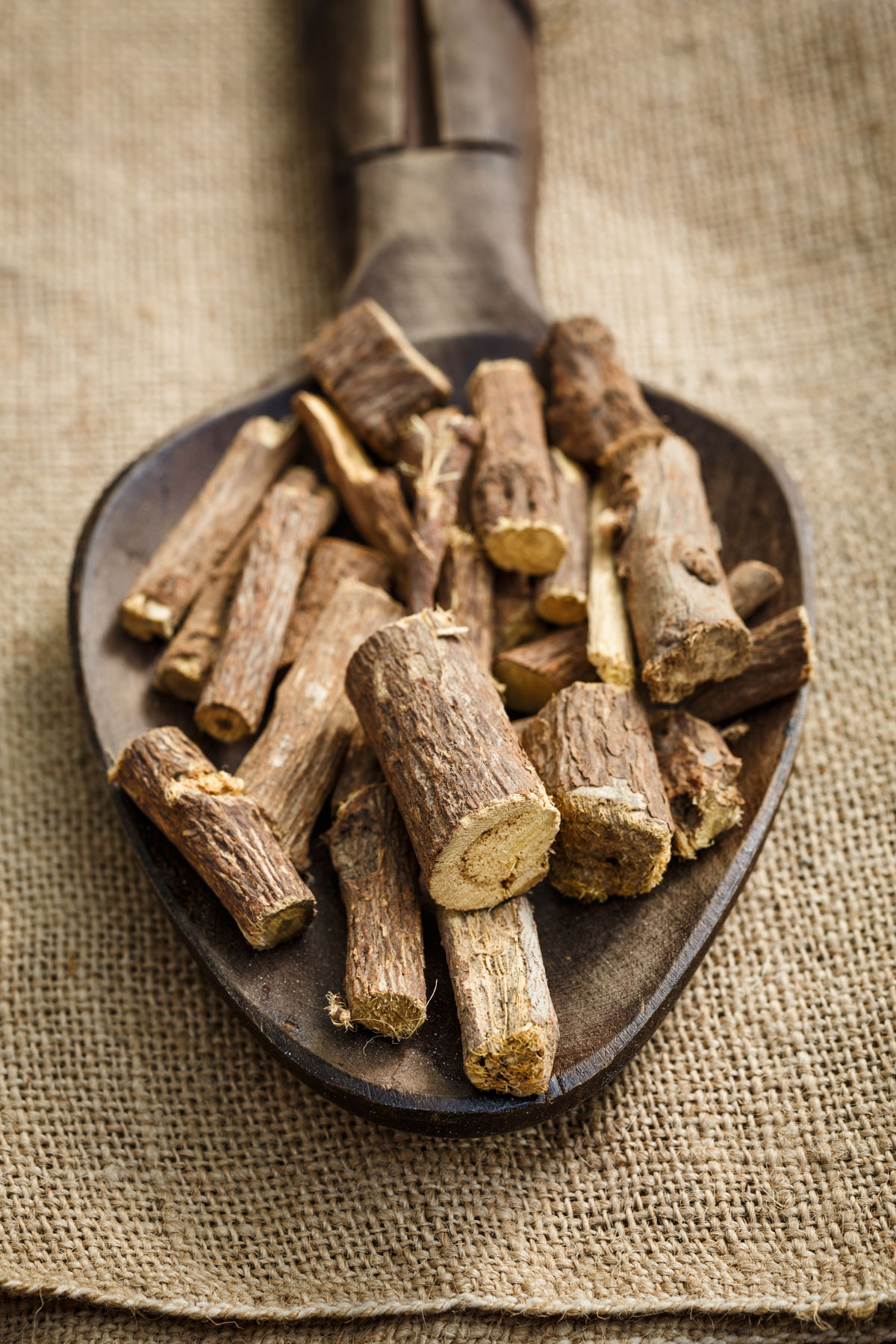
Licorice is a demulcent, anti-inflammatory, and immunomodulant herb. Traditional indications include dry cough and wheezing (Winston & Maimes, 2007), in part based on its moistening and soothing qualities, which can be recognized almost immediately upon drinking the tea. Licorice root is a great option for supporting healthy immune function in those with autoimmune or hypersensitivity concerns. Seemingly a true immune amphoteric (balancer), it has been shown to boost immune function in people with cancer and chronic fatigue immune deficiency syndrome (Winston & Maimes, 2007). It also reduces excessive immune response in those with autoimmune disease (e.g., rheumatoid arthritis, lupus, scleroderma) and allergies, including allergic asthma (Winston & Maimes, 2007). These factors combine to make licorice a generally safe herb for autoimmune disease.
Licorice should be avoided by individuals with high blood pressure, or even a tendency for high blood pressure, and those taking potassium-depleting diuretics, digoxin, or monoamine oxidase inhibitors (MAOIs) due to potential interactions (Winston & Maimes, 2007).
Licorice root infusion or decoction makes a pleasingly sweet and slightly bitter tea that blends well with other herbs and can often be found as an ingredient in boxed tea blends. Licorice root can also be prepared as a tincture.
Tulsi (Ocimum tenuiflorum) aerial parts
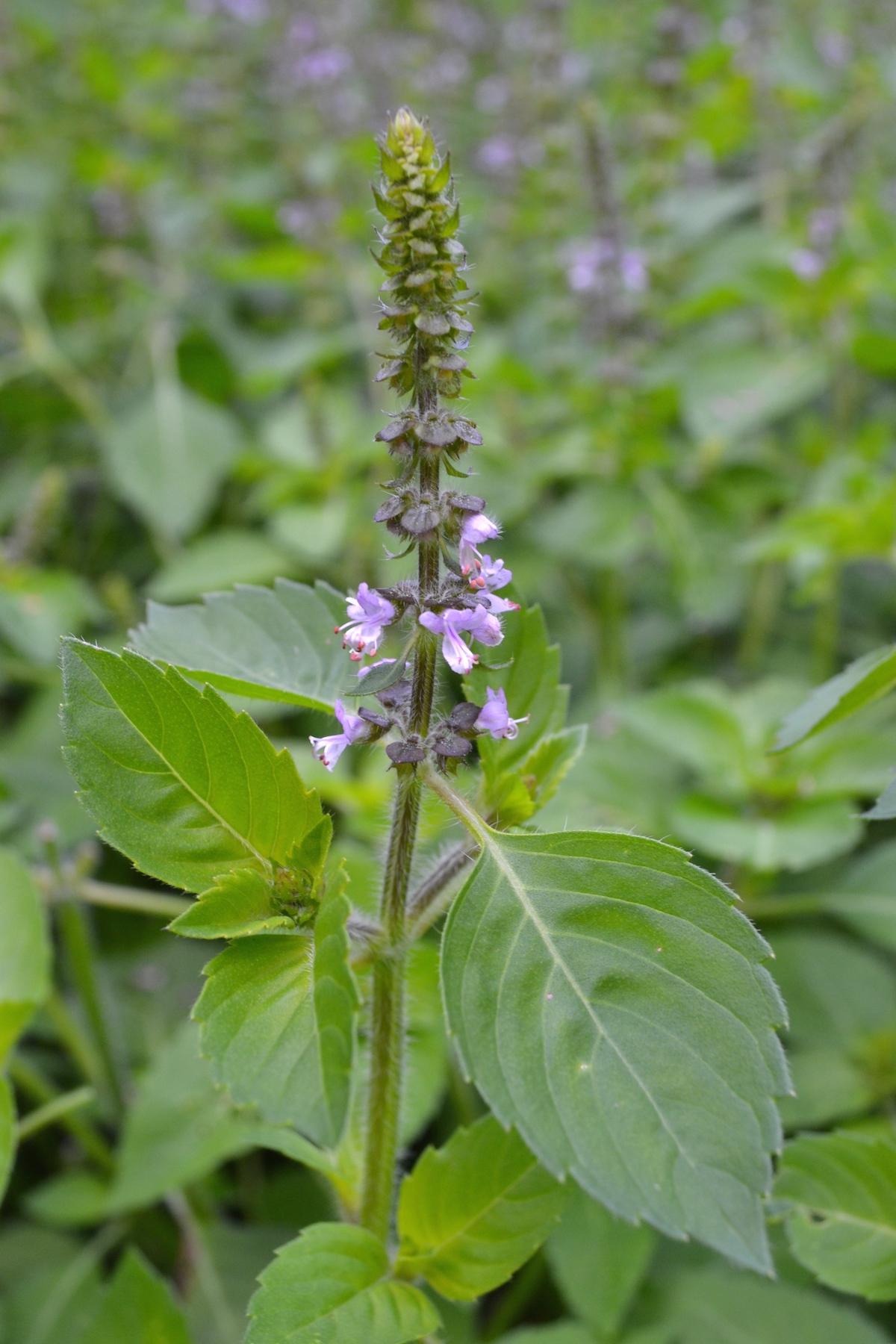
Tulsi (Ocimum tenuiflorum), also called holy basil or sacred basil, is considered a food or culinary tea with health benefits in India and surrounding areas where it is an important herb in the materia medica of Ayurveda. Its use has become widespread, and it can be found in boxed tea blends or on its own in many places in the United States and worldwide.
Traditional uses of tulsi include bronchitis, asthma, colds, and the flu (Winston & Kuhn, 2008). Tulsi demonstrates amphoteric/immunomodulating effects, downregulating excessive immune responses such as allergic asthma and allergic rhinitis while supporting immune competence (Winston & Kuhn, 2008). Clinical research has shown potential for tulsi to modulate various measures of immune health in a blind study with healthy volunteers who consumed an alcohol extract of tulsi leaf encapsulated in a 300 mg capsule (Mondal et al., 2011). Tulsi has also reduced airway reactivity in bronchitis patients in human trials, and enhanced survival rates and reduced cognitive impairment in viral encephalitis patients (Williamson, 2002).
In addition to tulsi’s immunomodulant properties, it also provides expectorant and antiviral actions. In Indian folk medicine, a decoction has been used in cases of fevers caused by malaria and is consumed for excessive bronchial mucus and bronchitis (Winston & Maimes, 2007). In Thailand, tulsi has been used for colds, the flu, headaches, coughs, and sinusitis, and to lower fevers (Winston & Maimes, 2007). Tulsi should be avoided in pregnancy beyond occasional small or culinary amounts.
Tulsi has a sweet and pungent flavor and is ideal as a tea or syrup.It can also be prepared as a tincture or glycerite. Learn more in 7 Ways to Use Tulsi Everyday.
CONCLUSION
The takeaway here is that you do not need to have every single one of these herbs for immune support if you know just one or two that agree with you. Start with small amounts, one herb at a time, and observe how your body responds to each. Look to immunomodulant herbs over immunostimulant herbs, and cross reference what different sources say about each particular herb, and why. When in doubt, favor those herbs that you have used before and with which you are familiar.
There are many more we could have mentioned in reference to immunomodulation, so do not fret if the herbs that you have found to work well for you are not included on this short list! If you have a complicated health history, try small amounts of gentle herbs when you are well, or better yet, seek the one-on-one informed guidance of a clinical herbalist, naturopathic doctor, or other health professional who is knowledgeable about herbs. With time, you’ll find the practices that best support you personally, including safe and effective herbs for autoimmune disease.
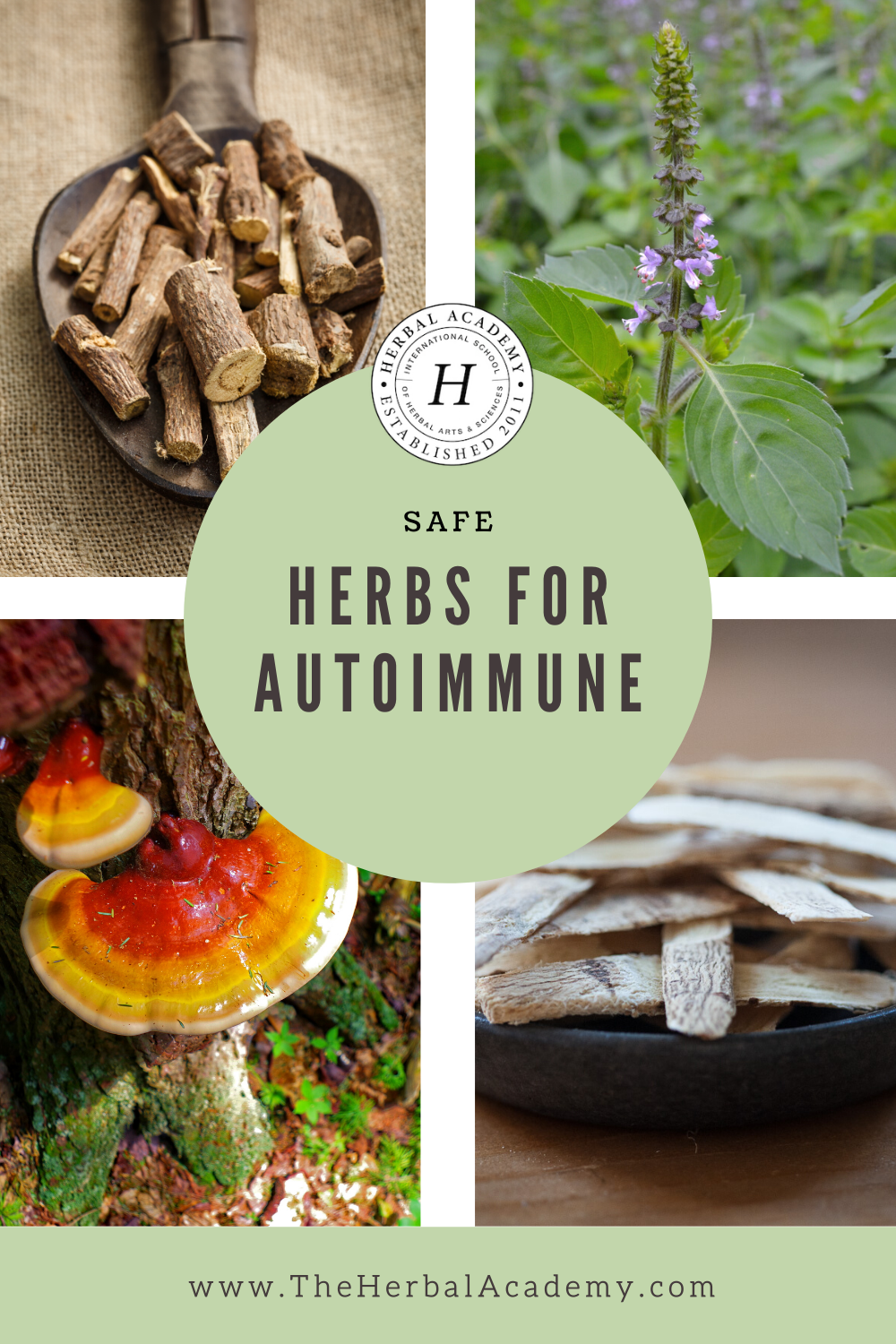
REFERENCES
Andrew Weil Center For Integrative Medicine. (n.d.). COVID-19 FAQ. Retrieved from https://integrativemedicine.arizona.edu/COVID19/FAQ.html
Angelini, J. (2016, October 1). Novel mushroom compounds. American Herbalists Guild Symposium. Presentation conducted at the meeting of American Herbalists Guild, Seven Springs, PA.
Brinker, F. (2010). Herbal contraindications and drug interactions. Sandy, OR: Eclectic Medical Publications.
Gardner, Z., & McGuffin, M. (Eds.). (2013). American Herbal Products Association botanical safety handbook. Boca Raton, FL: CRC Press.
Hobbs, C. (1995). Medicinal mushrooms. An exploration of tradition, healing, and culture. Summertown, TN: Botanica Press.
Hoffmann, D. (1993). An elder’s herbal. Rochester, VT: Healing Arts Press
Hoffmann, D. (2003). Medical herbalism. Rochester, VT: Healing Arts Press
Johns Hopkins Lupus Center. (2020). 5 things to avoid if you have lupus. Retreived from https://www.hopkinslupus.org/lupus-info/lifestyle-additional-information/avoid/
Kuhn, M., & Winston, D. (2008). Herbal therapy & supplements. Philadelphia, PA: Wolthers Kluwer Health.
Lull, C., Wichers, H., Huub, F., & Savelkoul, J. (2005). Antiinflammatory and immunomodulating properties of fungal metabolites. Mediators of Inflammation, 2005(2), 63-80. http:/doi.org/10.1155/MI.2005.63
Mondal, S., Varma, S., Bamola, V., Naik, S., Mirdha, B., Padhi, M., … Mahapatra, S. (2011). Double-blinded randomized controlled trial for immunomodulatory effects of Tulsi (Ocimum sanctum Linn.) leaf extract on healthy volunteers. Journal of Ethnopharmacology, 136(3), 452-456. http://doi.org/10.1016/j.jep.2011.05.012
Pallav, K., Dowd, S., Villafuerte, J., Yang, X., Kabbani, T., Hansen, J., … Kelly, C. (2014). Effects of polysaccharopeptide from Trametes versicolor and amoxicillin on the gut microbiome of healthy volunteers: A randomized clinical trial. Gut Microbes, 5(4), 458-467. https://doi.org/10.4161/gmic.29558
Stamets, P. (2005). Mycelium running: How mushrooms can help save the world. New York, NY: Ten Speed Press.
Sun, W., Yu, J., Shi, Y.M., Zhang, H., Wang, Y., & Wu, B.B. (2010). Effects of Cordyceps extract on cytokines and transcription factors in peripheral blood mononuclear cells of asthmatic children during remission stage. Zhong Xi Yi Jie He Xue Bao, 8(4), 341-346. doi: 10.3736/jcim20100407
Thompson Healthcare. (2007). PDR for herbal medicines, 4th ed. Montvale, NJ: Thompson Healthcare.
Tierra, M. (1998). The way of Chinese herbs. New York, NY: Pocket Books.
Wang, N., Li, J., Huang, X., Chen, W., Chen, Y. (2016). Herbal medicine Cordyceps sinensis improves health-related quality of life in moderate-to-severe asthma. Evidence-Based Complementary Alternative Medicine, 2016, Article ID 6134593. https://doi.org/10.1155/2016/6134593
Williamson, E. [Ed.]. (2002). Major herbs of Ayurveda. Edinburgh, UK: Churchill Livingstone.
Winston, D., & Maimes, S. (2007). Adaptogens: Herbs for strength, stamina, and stress relief. Rochester, VT: Healing Arts Press.
Zampieron, E., & Kamhi, E. (2012). Natural support of autoimmune and inflammatory disease. Journal of Restorative Medicine, 1(1), 38-47.
Zeng, P., Li, J., Chen, Y., & Zhang, L. (2019). Chapter 17 – The structures and biological functions of polysaccharides from traditional Chinese herbs. Progress in Molecular Biology and Translational Science, 163, 423-444. https://doi.org/10.1016/bs.pmbts.2019.03.003


